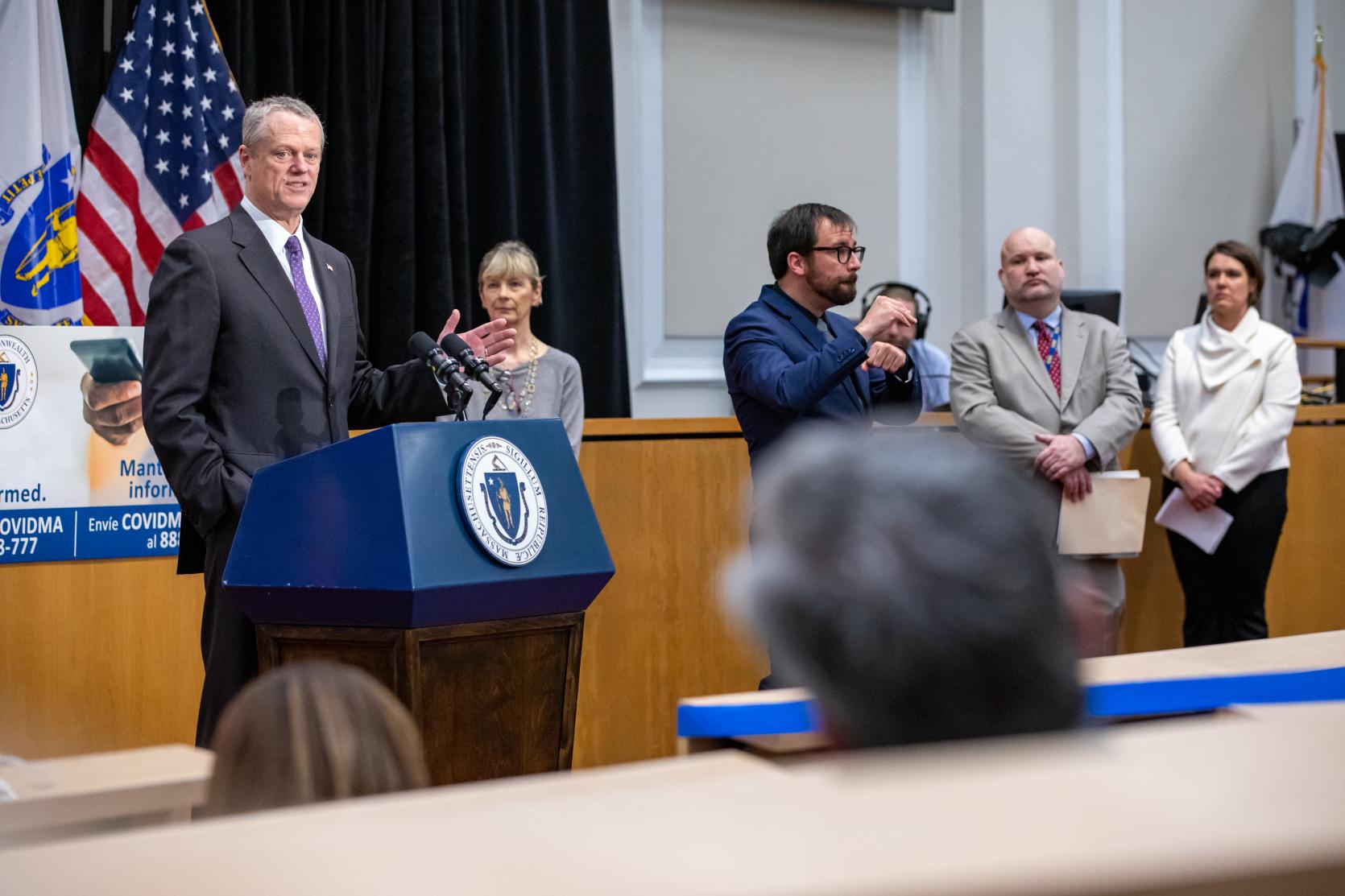Evictions and foreclosures will have to wait — at least some of them — following an emergency bill signed into law by Gov. Charlie Baker on Monday in response to the coronavirus pandemic.
The moratorium, effective upon the governor’s signature, puts a hold on most evictions for 120 days — that stipulates an end date of Aug. 18 — or 45 days after the state-of-emergency is lifted by the governor, whichever comes first. Landlords of smaller buildings get 180 days of forbearance on their mortgages under the legislation.
The law could face a legal challenge from MassLandlords, a trade association for the rental housing industry, which has publicly opposed the law as unconstitutional. The group argues that the foreclosure moratorium only applies to owner-occupied buildings with four units or fewer and puts a lot of landlords at risk.
Douglas Quattrochi, executive director of MassLandlords, said in a telephone interview that his association’s average member has 19 units and will not be protected under the law. He’s hoping lawmakers will reconsider. “If they made the forbearance [protections] apply to everybody, that would be a huge relief,” he said.
In the days leading up to the bill’s approval, MassLandlords encouraged its members to call and email Baker’s office to request the Supreme Judicial Court review the proposal’s constitutionality.
“It will effectively compel owners to provide free housing (a public benefit) at their own expense, with no compensation from the Commonwealth,” the association noted on its website. Specifically, MassLandlords asserts that the law violates both Article 10 of the Massachusetts constitution, which forbids the taking of property without compensation, and Article 11, which provides the right to seek a legal remedy. “To make matters worse, the law would remain in effect at the discretion of the governor, not the legislature. This is a separation of powers issue,” the association noted.
Quattrochi said the association is considering litigation, but that’s just one path forward for landlords not covered by the law. He said there is still an opportunity for the state to amend the law to include all landlords. “We don’t mean to say the economy should take priority over public health, but housing costs are real and they still need to be paid,” he said, adding that inaction will lead to a wave of evictions in a few months for landlords who have “squeaked by” in the meantime.
Quattrochi cited comments widely disseminated by Greg Vasil, CEO of the Greater Boston Real Estate Board, who recently told State House News Service that it is “not a balanced bill” and BisNow that some landlords are still vulnerable because many won’t get rent until 2021.
In mid-March, Vasil publicly backed an effort advanced by Mayor Marty Walsh for landlords to self-impose a moratorium on evictions. Vasil said at the time that it was vital “to do our part to minimize the anxiety and health risk to our tenants.” He could not immediately be reached for comment.

